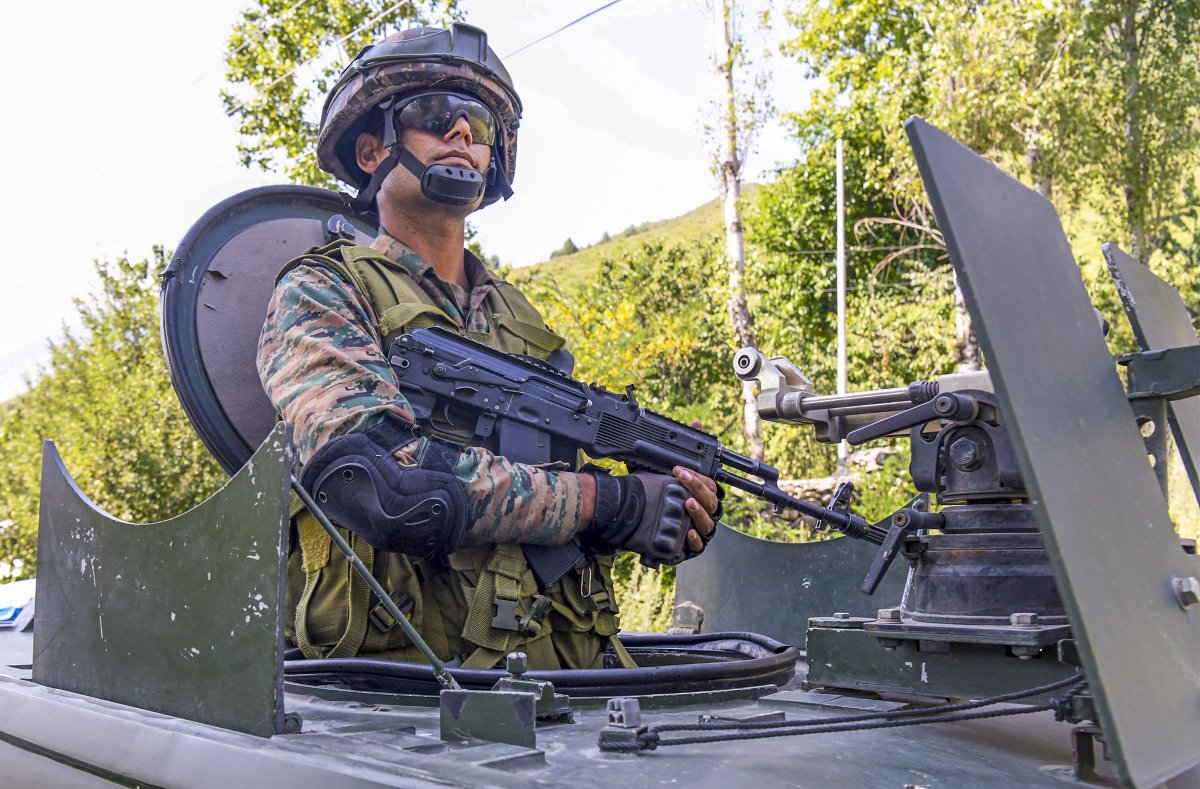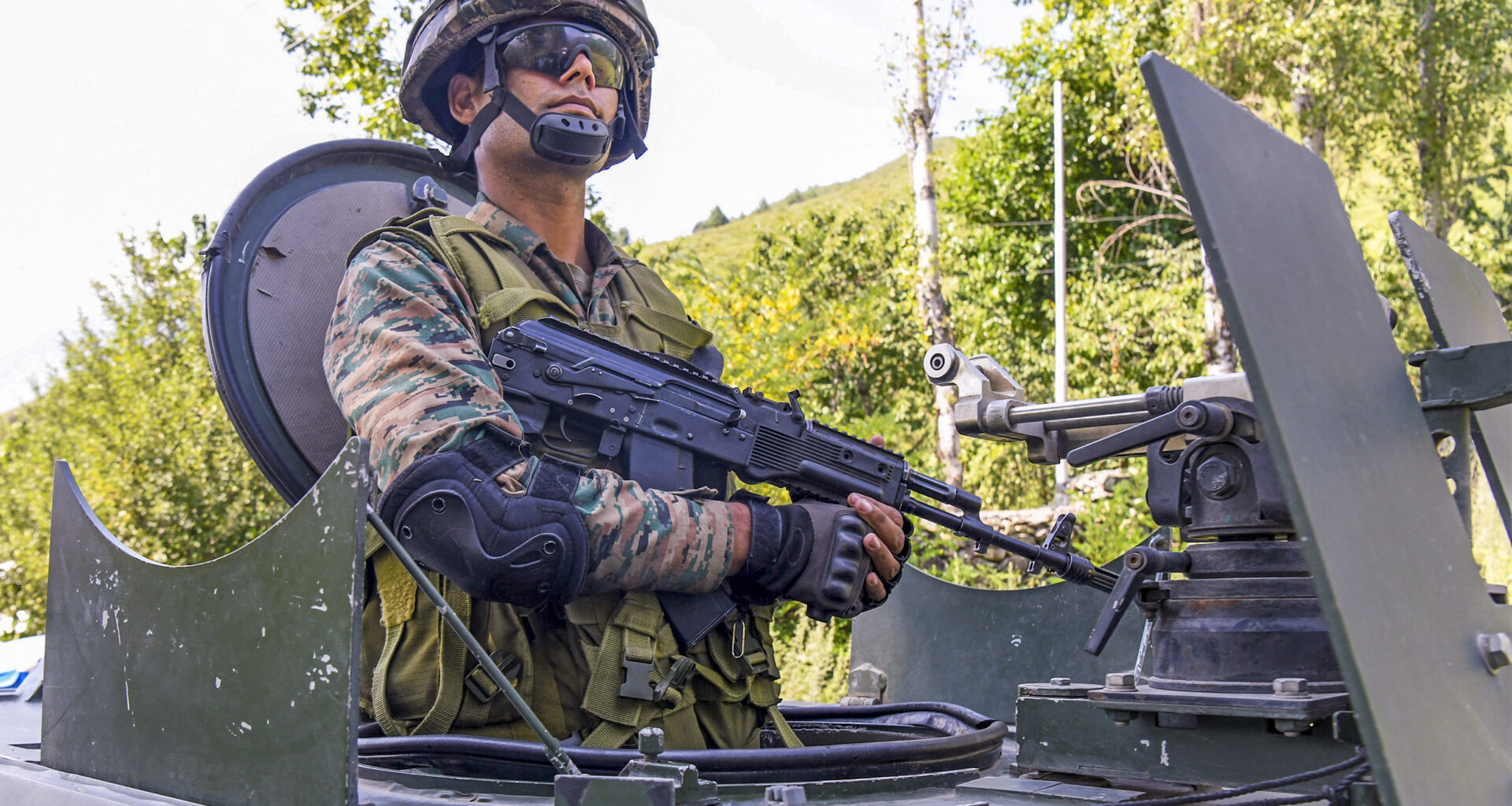A senior Pakistani military official on a visit to the United States vowed to respond forcefully to any escalation by India, saying “any mistake” by the neighbor could trigger a catastrophic conflict between the two nuclear-armed rivals.
The comments by Field Marshall Asim Munir, the Pakistan army’s chief of staff, were delivered on Sunday at a gathering of the Pakistani community in Tampa, according to Pakistani news portal ARY News.
His remarks were widely reported by the Indian press. New Delhi responded on Monday by describing them as “nuclear blackmail.”
The U.S. State Department and India’s External Affairs Ministry did not immediately respond to separate requests for comment.
Why It Matters
The Pakistani official’s warning demonstrated that tensions with India remained high despite the ceasefire that followed their brief but intense military confrontation in May in the disputed Kashmir region in the Himalayas.
Munir’s trip to the United States is his second visit in as many months, part of a broader warming of ties between the United States and Pakistan—a major non-NATO ally to Washington since 2004—happening at the same time as an ongoing U.S.-India trade dispute over tariffs imposed by President Donald Trump on Indian goods.

Army jawans stand guard and security forces patrol near the encounter site in Lidwas Meadows of Dara, Srinagar district, India, on July 28, 2025. The area remains tense following a gunbattle in which three Pakistani…
Army jawans stand guard and security forces patrol near the encounter site in Lidwas Meadows of Dara, Srinagar district, India, on July 28, 2025. The area remains tense following a gunbattle in which three Pakistani militants, including top Lashkar-e-Taiba commander Suleiman Shah, also known as Musa Fauji, were killed under Operation Mahadev. Shah is believed to be the mastermind behind the recent Pahalgam attack that killed 26 civilians.
More
BASIT ZARGAR/Middle East Images/AFP/Getty Images
What To Know
“We are a nuclear nation; if we think we are going down, we’ll take half the world down with us,” Munir said, according to Indian ThePrint news site.
The Pakistani official also threatened to destroy “with 10 missiles” any dam India builds on the Indus River, the website said, in an apparent reference planned Indian dam projects that Pakistan says threaten its water security.
Munir also hailed Pakistan’s response to Operation Sindoor, the military operation launched by India following the Pahalgam terror attack in Kashmir that killed 26 people and injured 20 others. Pakistan denies supporting the militants accused of carrying out the attack.
“A bilateral conflict due to any mistake by India would be a huge blunder,” Munir said.
Newsweek could not independently verify the quotes.
“Nuclear sabre-rattling is Pakistan’s stock-in-trade,” India‘s External Affairs Ministry said in a public statement on its website. “It is also regrettable that these remarks should have been made from the soil of a friendly third country.”
“India has already made it clear that it will not give in to nuclear blackmail. We will continue to take all steps necessary to safeguard our national security,” the statement said.
Pakistan has nominated Trump for the Nobel Peace Prize for his diplomatic efforts during the recent Kashmir conflict. India, however, has contradicted Trump’s claim that he brokered peace between the two neighbors.
Now, strategic U.S.-India alignment, particularly against China, could be in jeopardy as Trump and Indian Prime Minister Modi struggle to reach an agreement on trade.
What People Are Saying
Field Marshal Syed Asim Munir, Pakistan’s chief of army staff, as quoted by ARY News: “India is still adamant on creating instability in the region. […] Pakistan has made it clear that any Indian aggression will be met with a befitting reply.”
India’s Ministry of External Affairs in a public statement: “The international community can draw its own conclusions on the irresponsibility inherent in such remarks, which also reinforce the well-held doubts about the integrity of nuclear command and control in a state where the military is hand-in-glove with terrorist groups.”
What Happens Next
Washington’s public warming to Islamabad, despite close ties between Pakistan and China, could influence India’s own foreign policy outlook amid regional tensions with China.
